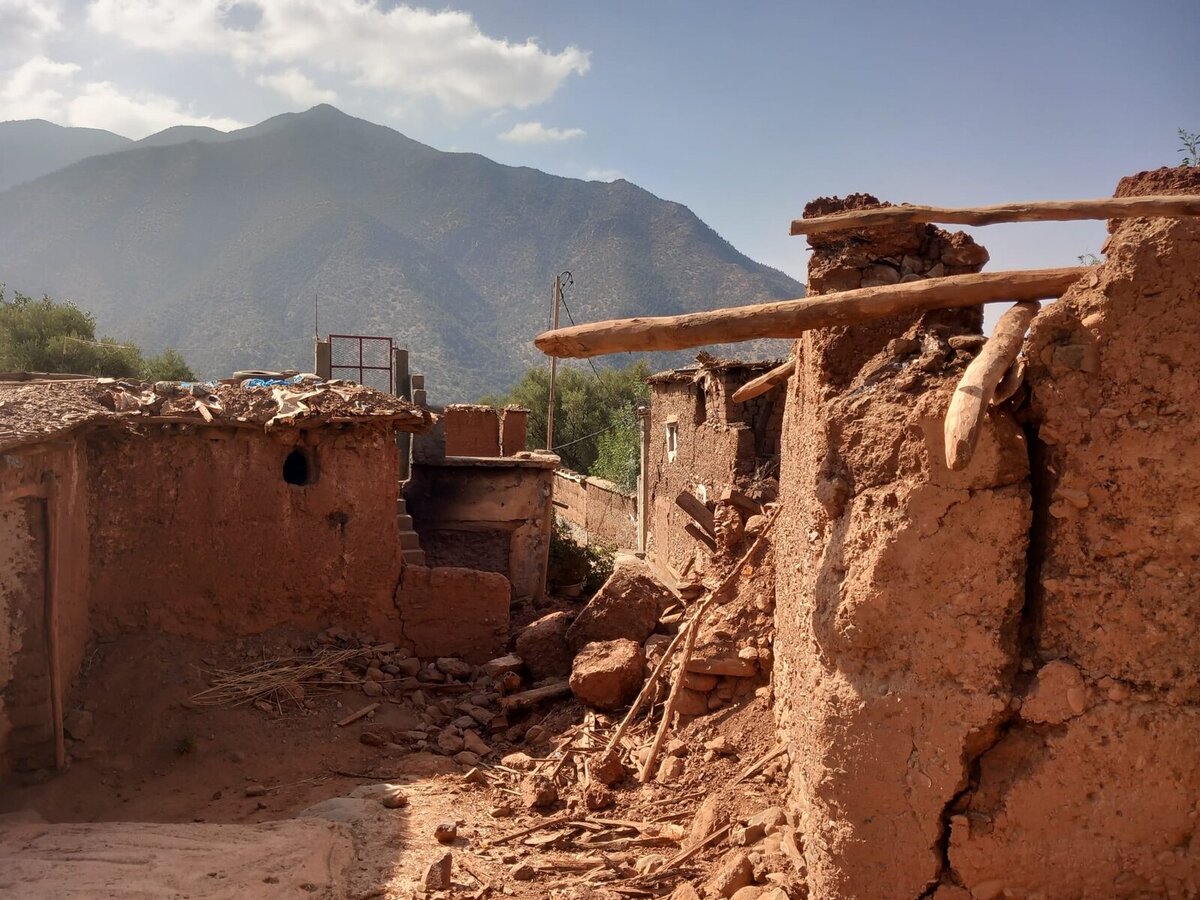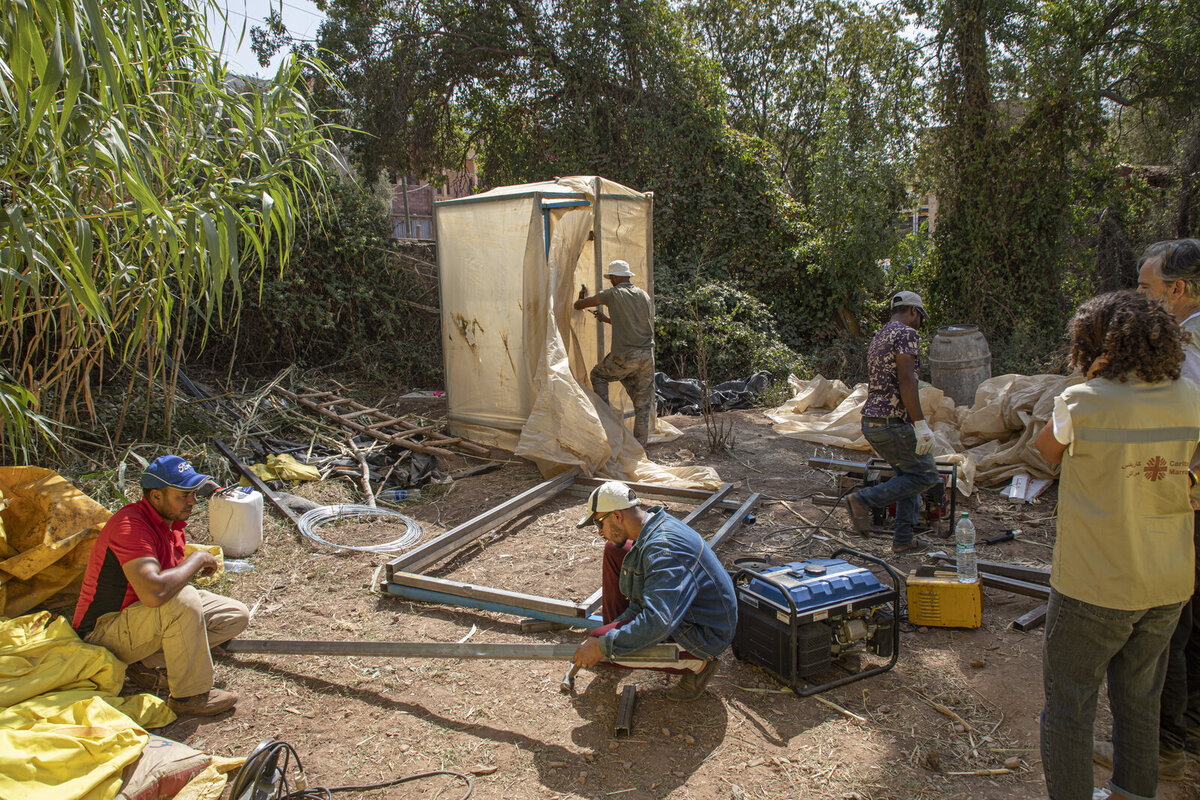The catastrophic earthquake that struck Morocco on the night of Friday, 8 to Saturday, 9 September, has already claimed almost 3,000 lives. The tremors have affected up to 300,000 people, thousands of people are injured. Caritas Czech Republic immediately launched a collection to help people affected by the earthquake and sent its representative to the site. How is the Caritas network helping on the ground?
Distributing water, food and clothing
The epicentre of the earthquake, measuring 6.8 on the Richter scale, was in the High Atlas Mountains, near historic Marrakech. Almost 3,000 people lost their lives, with thousands more injured. Unfortunately, the death toll will continue to rise. Especially because rescuers are only just reaching the hard-hit remote areas in the mountains. According to the UN, up to 300,000 people have been affected by the tremors, a third of them children. Our colleague, Kateřina Velíšková, Caritas Czech Republic's regional manager for the Middle East and Mongolia, is on the ground in earthquake-hit Morocco.
"On the way to the centre of Marrakech I saw dozens of people sleeping outside on the grass. The situation is worst in the mountainous areas, where help is only just arriving," Kateřina Velíšková describes the situation in Morocco.
The Caritas network, specifically Caritas Morocco, is also helping in the affected areas. Caritas distributes clothing, drinking water, food, medicine and first aid packages. There is also an urgent need to provide safe shelter and electric generators for people affected by the earthquake so that they can charge their phones and connect with their loved ones.
Rescue workers are still uncovering the rubble of houses that collapsed because of the earthquake. Many people remain trapped underneath. The situation is particularly critical in hard-to-reach mountainous areas where aid is slow to arrive. The tremors have triggered landslides that have blocked roads, making it difficult for rescue teams to reach the affected areas. In the historic centre of Marrakech, old buildings have collapsed and blocked narrow streets, complicating rescue efforts.
Residents of the affected areas who have lost their homes are sleeping outside fearing aftershocks and further destruction. Experts say aftershocks could last for weeks or months. Humanitarian aid is urgently needed on the ground.
"We have sent a first aid convoy to the mountain areas with food, a generator, clothing and tent. Caritas is the first help to arrive in these areas. There is no electricity on the ground, but also a lack of safe shelter in solid tents. We saw many injured children in their pyjamas, with cuts and open wounds that had not been treated. It is therefore absolutely necessary to provide medicines and materials to disinfect the wounds as quickly as possible," says the director of Caritas Rabat, Óscar Arturo, adding that it is also urgent to provide latrines and ensure safe hygienic conditions so that diseases do not spread in the affected areas.
Immediately after the earthquake, Caritas Czech Republic launched a collection to help the affected people. Funds from the collection will help provide basic necessities of life such as safe shelter, hot food, water and clothing. We are also ready to help rebuild the damaged areas, which may take up to several years.
The most tragic earthquake in Morocco in 60 years
The epicentre of the devastating earthquake was in the High Atlas Mountains, about 70 kilometres south-west of the city of Marrakech. The earthquake affected six provinces where 10 million people live. According to available information, the tremors were felt as far south as Spain. It is the most devastating earthquake since 1960, when tremors around Morocco's historic port of Agadir reached 5.8 magnitude and caused thousands of casualties. There has not been an earthquake of magnitude six or higher within a 500-kilometre radius since 1900.
UNICEF reports that up to 100,000 children have been affected by the tremors, out of a reported 300,000 people affected. According to data from last year, children make up almost a third of Morocco's population. The tremors destroyed schools, hospitals and other health and education facilities. This at a time when temperatures are dropping at night.
Hard hit are the mountainous areas, where aid is very difficult to reach. Up to 40 per cent of the Moroccan population lives in extremely remote rural areas. It can take up to weeks for aid to reach these villages.
Earthquakes in Morocco are rare and there is little awareness of them. In Marrakech, it is mainly the historic buildings that are not earthquake-proof and have not withstood such strong shaking. Moreover, experts say aftershocks can last for weeks or months. More than 25 tremors have hit the area since the devastating 6.8 magnitude earthquake. Recovery of the damaged areas is likely to take several years.










